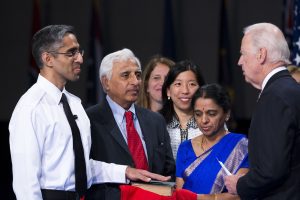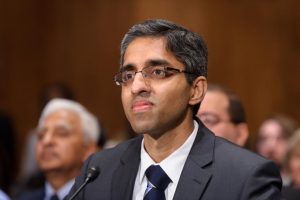
May is Mental Health Awareness Month. In an 85-page advisory, U.S. Surgeon General Vivek Murthy declared loneliness a new public health crisis.
The research highlights the national public health crisis of loneliness, isolation, and disconnection. Before the COVID-19 outbreak, half of U.S. adults reported loneliness. Disconnection harms our physical, mental, and social health. Loneliness and isolation canlead to mental health issues and early death, akin to daily smoking
The Surgeon General’s Advisory on Our Epidemic of Loneliness and Isolation proposes a National Strategy to Advance Social Connection, a first for the US. It offers suggestions for individuals, governments, workplaces, health systems, and community organizations to improve health and connectivity in their lives, communities, and nations.
Our epidemic of loneliness and isolation has impacted individual and social health. “Our relationships are a source of healing and well-being hiding in plain sight—one that can help us live healthier, more fulfilled, and more productive lives,” said U.S. Surgeon General Dr.
Vivek Murthy. We must prioritize social connections like we do cigarettes, obesity, and substance use problems because loneliness and isolation have serious health repercussions. We can develop a healthier, more resilient, less lonely, and more connected nation.”

Poor connection increases the risk of heart disease, stroke, and dementia in older persons by 29%, 32%, and 50%, respectively. Social isolation increases premature death risk by almost 60%.
Loneliness and solitude also affect our mental health. Lonely adults are twice as likely to develop depression. Childhood loneliness and social isolation raise depression and anxiety risks now and later. In order to fully solve the mental health epidemic in the U.S., loneliness and isolation must be addressed.
Social connection can treat the epidemic of loneliness and isolation, which harm our health and well-being.
Social connection enhances health and community resilience. Connection reduces the risk of heart disease, stroke, dementia, and depression. Connected communities have higher population health, safety, resilience to natural disasters, prosperity, and civic involvement.
The National Strategy to Advance Social Connection in the United States is laid out in this Surgeon General’s Advisory using six guiding principles:
1 Strengthen Social Infrastructure: In addition to individual interactions, the physical components of a community (parks, libraries, and playgrounds), as well as the programs and policies in place, have an impact on connections. Communities must create circumstances that foster connection, launch and expand community connection initiatives, and fund institutions that unite people in order to build social infrastructure.
2 Enact Pro-Connection Public Policies: A community or a family can be more connected if policies like paid family leave or accessible public transit are in place, which can be supported by national, state, municipal, and tribal governments.
3 Mobilize the Health Sector: Health care professionals are in a good position to assess patients for loneliness risk and intervene because loneliness and isolation are risk factors for a number of serious health diseases (such as heart disease, dementia, and depression) as well as for premature mortality.
4 Reforming Digital Environments: We must critically assess our relationship with technology and make sure that our digital interactions do not take away from deep and healing human connections.
5 Deepen Our Knowledge: To advance our knowledge of the causes and effects of social disconnection, populations at risk, and the efficacy of connection-promoting initiatives, a more comprehensive research agenda that goes beyond the data given in the advice must be formed.
6 Cultivate a Culture of Connection: The interpersonal interactions we have in our lives are greatly influenced by the informal practices of daily life (the customs and cultures that govern how we interact with one another). Without a culture of connectedness, we cannot succeed in the other pillars.
The Surgeon General’s Advisories alert Americans to important public health issues and offer solutions. Public health emergencies warrant advisories. Dr. Murthy, the 21st Surgeon General of the United States, has focused much of his work, research, and public platform on how the nation can emerge from the pandemic stronger than before, including his recently issued Surgeon General’s Advisories on Youth Mental Health, Health Worker Well-Being, and Workplace Well-Being.










